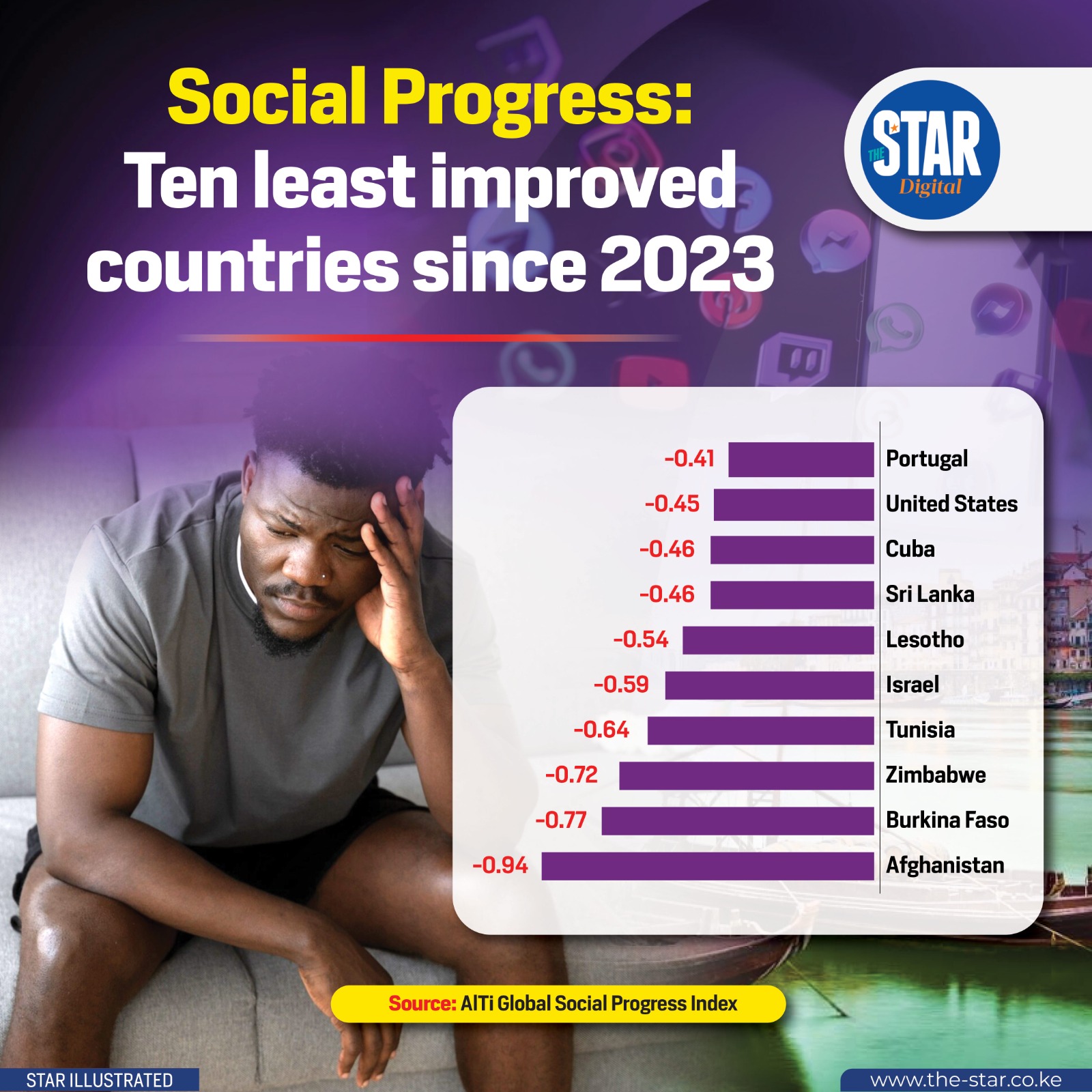
Social Progress: 10 most improved countries since 2011
Kenya features among those countries having improved significantly.
In Summary

Audio By Vocalize

An analysis of the AITI Global Social Progress Index identifies the ten countries that have shown the least improvement in social progress since 2023.
These nations have all recorded negative change scores, indicating a decline in their overall social well-being metrics.
At the lower end of the spectrum, Afghanistan and Burkina Faso register the most significant declines, with changes of −0.94 and −0.77, respectively.
Other African nations on the list include Zimbabwe (−0.72), Tunisia (−0.64), and Lesotho (−0.54).
Interestingly, several established, high-income nations also appear in the bottom ten, reflecting challenges to social progress that are not exclusive to developing economies. The United States experienced a decline of −0.45, placing it near Portugal (−0.41) and Cuba (−0.46).
Sri Lanka and Israel also saw setbacks, highlighting a widespread difficulty in maintaining or accelerating social improvements globally since 2023.
Social progress is defined as the capacity of a society to meet the basic human needs of its citizens, establish the building blocks that allow citizens and communities to enhance and sustain the quality of their lives, and create the conditions for all individuals to reach their full potential.

Kenya features among those countries having improved significantly.